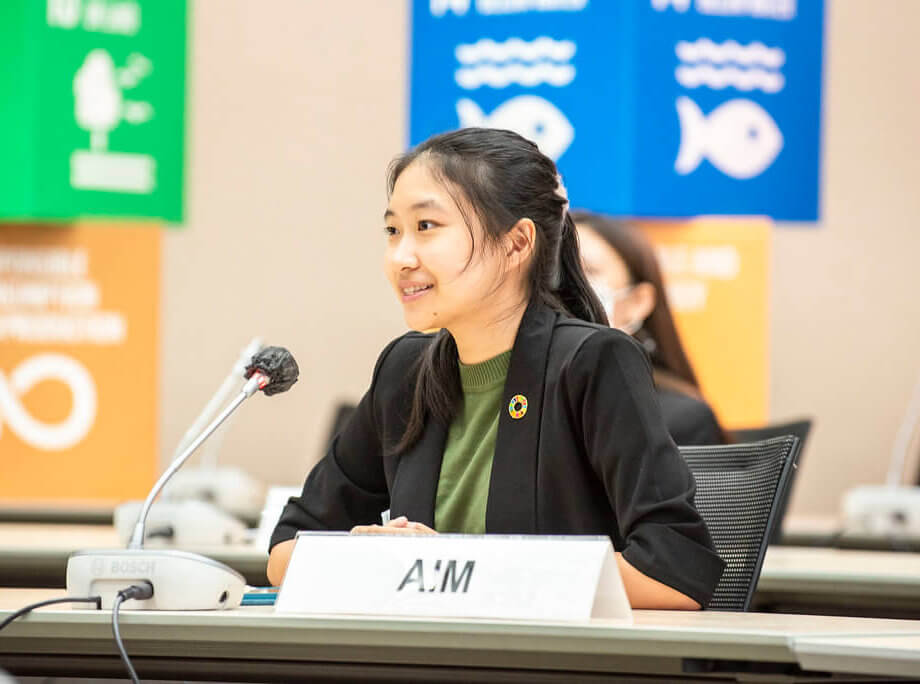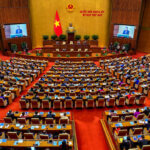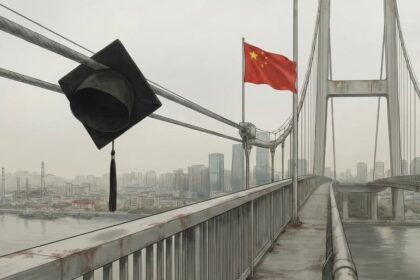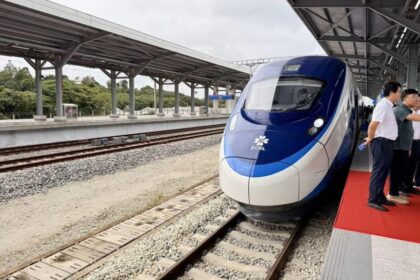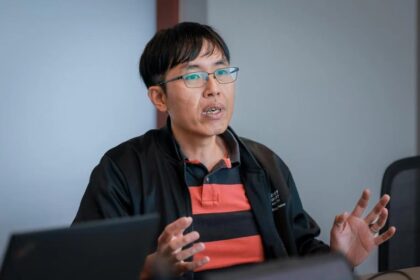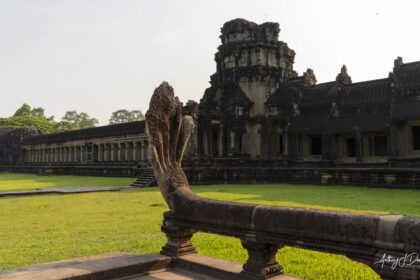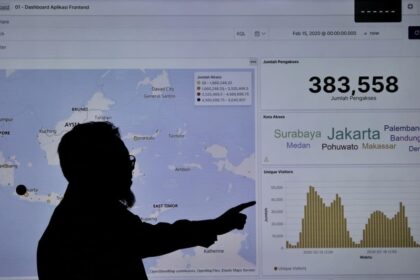Introduction: A New Generation of Climate Leaders
In the global fight against climate change, a new generation of leaders is emerging—young, passionate, and determined to make a difference. Among them is Aminta Permpoonwiwat, a Thai climate activist whose journey from a school debating club to the international stage of the United Nations exemplifies the power of youth-driven change. Aminta’s story is not just about environmental advocacy; it is also a testament to the transformative potential of education and the urgent need for female empowerment in the face of climate and social challenges.
- Introduction: A New Generation of Climate Leaders
- From Debating Club to Climate Advocacy
- Youth Mentorship Project: Bridging Education and Climate Action
- Representing Thailand on the International Stage
- Climate Change and Gender Inequality: Interconnected Challenges
- Global Recognition and Ongoing Advocacy
- Women and Girls Leading the Fight Against Climate Change
- Challenges and the Road Ahead
- In Summary
From Debating Club to Climate Advocacy
Aminta’s path into climate activism began in her school’s debating club, where she first encountered the complexities of global warming. While debate honed her research and public speaking skills, she soon realized that discussion alone was insufficient to address the scale of the climate crisis. This frustration became a catalyst for action, propelling her to seek more direct ways to effect change.
Her initial foray into community service was through Saturday School, a volunteer organization that sends young people to teach in schools across Thailand. However, Aminta noticed a critical gap: climate education was largely absent from the curriculum. Recognizing the importance of equipping the next generation with knowledge about climate resilience and sustainability, she decided to take matters into her own hands.
Youth Mentorship Project: Bridging Education and Climate Action
Aminta founded the Youth Mentorship Project (YMP), a youth-led initiative that recruits high school volunteers to teach children in rural Thailand about climate change, sustainability, and resilience. The project’s approach is both innovative and empathetic, leveraging peer-to-peer learning and making complex topics accessible and engaging for young students.
Through YMP, Aminta and her team have reached over a thousand students, focusing on communities that are often overlooked in mainstream educational reforms. The project integrates climate education with STEAM (Science, Technology, Engineering, Arts, and Mathematics) subjects, ensuring that students not only understand the science behind climate change but also develop critical thinking and problem-solving skills.
Aminta’s experience as a mentor and educator has given her unique insights into the challenges faced by children in rural areas, particularly girls. Many come from farming families and are frequently absent from school during droughts or floods, as they are needed to help at home. These experiences have deepened her commitment to addressing both environmental and social inequalities.
Representing Thailand on the International Stage
In 2021, Aminta’s leadership and advocacy were recognized when she was selected as one of Thailand’s delegates to the United Nations Youth4Climate program. She joined nearly 400 young leaders from over 186 countries at the Conference of Youth on Climate in Milan, Italy, where she helped draft a youth manifesto presented to world leaders at the Pre-COP 26 climate summit.
Her participation in these high-level forums has amplified the voices of Thai youth and brought attention to the unique challenges faced by young people in Southeast Asia. Aminta’s speeches and debates have been described as thought-provoking and impactful, resonating with audiences both at home and abroad. She has also represented Thailand at the ECOSOC Youth Forum and served as a Youth Advisor to the Special Rapporteur on the human rights to safe drinking water and sanitation.
Climate Change and Gender Inequality: Interconnected Challenges
Climate change is not a gender-neutral crisis. Its impacts disproportionately affect women and girls, especially in developing countries where they are more likely to be dependent on natural resources and less likely to have access to education and economic opportunities. In Thailand, institutionalized inequality and cultural norms often prioritize boys’ education, particularly when family finances are strained. Girls in rural areas are at risk of dropping out of school to support their families, perpetuating cycles of poverty and limiting their future prospects.
Aminta has witnessed these barriers firsthand. As a public school student and volunteer teacher, she saw how girls were deprived of opportunities and how education could be a powerful tool for change. She launched projects specifically aimed at encouraging girls to pursue higher education, discover their passions, and envision a future beyond traditional gender roles.
Empowering Girls Through Education
Aminta’s approach to female empowerment is rooted in the belief that education is foundational. She works to inspire girls to see education not just as a means to an end, but as a pathway to self-discovery, independence, and social mobility. Her mentorship programs emphasize the long-term benefits of staying in school, even in the face of economic or environmental hardships.
She recalls the “sparkle in their eyes” when girls realize the possibilities that education can unlock. By providing role models and practical support, Aminta hopes to break down the barriers that prevent girls from reaching their full potential. Her message to Thai girls is clear: have faith in yourself, know what you want, and work towards your goals with determination. She believes that women are resilient and powerful, capable of achieving success if given the opportunity.
Global Recognition and Ongoing Advocacy
Aminta’s work has not gone unnoticed. She is a recipient of the Chancellor’s Scholarship at Vanderbilt University, awarded to less than 1% of incoming undergraduates for outstanding leadership and commitment to diversity and social justice. She has been honored with the Royal Student Award initiated by King Rama IX and named a Distinguished Speaker for Global Peace and Women of the World’s Young Leader 2023.
Her advocacy extends beyond Thailand. As part of the UN Youth Advisory Board for the Sustainable Development Goals (SDGs), Aminta contributes to global discussions on climate action, gender equality, and human rights. She has facilitated events at the Human Rights Council in Geneva and continues to use her platform to promote inclusive, sustainable development.
The Power of Communication and Youth Leadership
Central to Aminta’s impact is her belief in the power of communication. As a former national team debater and passionate storyteller, she understands that raising awareness is only the first step—real change requires translating knowledge into action. She encourages young people to identify their strengths and use them to make a difference, no matter how small the initial steps may seem.
“We all can save the world in myriad ways,” Aminta has said. “The challenge is to change realization to action. Small actions, when added up, can result in a big difference.” Her emphasis on youth empowerment reflects a broader trend in climate activism, where young leaders are increasingly at the forefront of social movements and policy advocacy.
Women and Girls Leading the Fight Against Climate Change
Aminta’s story is part of a larger global movement. Around the world, women and girls are mobilizing for climate adaptation and mitigation, leading sustainability initiatives, and advocating for gender equality as a key component of climate action. The United Nations and other international organizations have recognized the critical role of women in building climate resilience and achieving the Sustainable Development Goals.
In countries from Tanzania to Cuba, Morocco to Bosnia and Herzegovina, women are overcoming stereotypes, acquiring new skills, and becoming agents of change in their communities. Their participation in decision-making processes and access to education and technology are essential for effective climate responses. As UN Secretary-General António Guterres has emphasized, empowering women is not only a matter of justice but also a strategic imperative for tackling the climate crisis.
Challenges and the Road Ahead
Despite significant progress, challenges remain. Gender inequality, lack of access to quality education, and limited representation in policy-making continue to hinder the full participation of women and girls in climate action. In Thailand, as in many countries, cultural norms and economic pressures can force girls to abandon their studies, undermining both their personal development and the broader goal of sustainable development.
Aminta’s work highlights the need for systemic change. Addressing climate change and gender inequality requires coordinated efforts from governments, civil society, and the private sector. Policy solutions must address the root causes of inequality, invest in education and capacity-building, and create opportunities for young people—especially girls—to lead and innovate.
In Summary
- Aminta Permpoonwiwat is a leading Thai youth climate activist and advocate for female empowerment, recognized internationally for her work.
- Her journey began in a school debating club and evolved into founding the Youth Mentorship Project, which educates rural children about climate resilience and sustainability.
- Aminta has represented Thailand at major international forums, including the UN Youth4Climate program and the ECOSOC Youth Forum.
- She emphasizes the interconnectedness of climate change and gender inequality, advocating for education as a key to empowering girls and building climate resilience.
- Aminta’s story is part of a global movement of women and girls leading climate action, but significant challenges remain in achieving gender equality and effective climate responses.
- Her message to young people, especially girls, is to believe in themselves, pursue education, and use their unique strengths to drive positive change.


